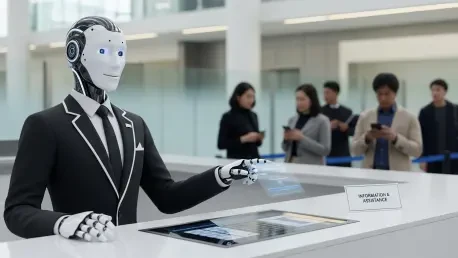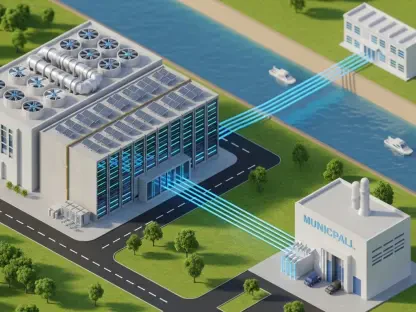As we dive into the transformative potential of artificial intelligence in state and local government, I’m thrilled to sit down with Donald Gainsborough, a political savant and leader at Government Curated. With his deep expertise in policy and legislation, Donald has been at the forefront of integrating AI into public systems, championing ethical and efficient solutions. In this conversation, we explore how AI is reshaping government operations, the importance of strategic implementation, efforts to mitigate its challenges, and the mindset needed to embrace this technology responsibly.
Can you share your experience at the recent virtual summit on AI in government and what left you feeling so optimistic about its potential?
Absolutely, Javier. The virtual summit was an incredible gathering of state and local leaders, tech experts, and innovators, all focused on how AI can revolutionize government. What struck me most was the shared enthusiasm for using AI to modernize public systems. We heard real-world examples of how it’s already making government more efficient and responsive to citizens’ needs. I left feeling optimistic because the discussions weren’t just theoretical—they were grounded in actionable ideas and a commitment to ethical implementation. It’s clear that AI, when used thoughtfully, can truly enhance how we serve our communities.
How would you describe the concept of ‘targeted implementation’ in the context of AI adoption in government?
Targeted implementation, to me, means being strategic about where and how we apply AI to maximize benefits while minimizing risks. It’s about identifying specific areas where AI can solve real problems or create efficiencies, rather than adopting it for the sake of novelty. In Connecticut, for example, we’ve rolled out programs like the AI Certificate in partnership with Google to make tech skills accessible to a wide range of people. We’re also working on initiatives like the Teen AI Academy and planning a Small Business AI Academy to ensure that everyone—from young innovators to local entrepreneurs—can thrive in this new landscape. It’s about tailoring AI solutions to meet specific community needs.
Can you tell us more about the AI training program for city employees in San Jose, California, and its impact on their work?
Certainly. San Jose, under Mayor Matt Mahan’s leadership, has partnered with San Jose State University to create a 10-week AI skill-building curriculum for city employees. Over 100 staff members have completed this voluntary program, and the results are impressive. For instance, the budget team now uses a custom AI tool to analyze complex documents much faster, saving countless hours. The transportation department has leveraged AI to streamline grant applications, securing funding for projects like electric vehicle chargers. Even routine tasks, like categorizing 311 calls and routing them to the right agency, have become more efficient. These aren’t just small wins—they’re tangible improvements that boost productivity and better serve the public.
What strategies are being implemented in Connecticut to address potential downsides of AI, such as job displacement?
We’re very aware of the potential for AI to disrupt certain job sectors, especially roles like customer service or administrative positions, which are often held by women and people of color. In Connecticut, we’re prioritizing upskilling programs and outreach to these communities to ensure no one is left behind. We’re building equity-focused partnerships to provide training and resources, helping workers transition to new roles or enhance their skills with AI tools. It’s about turning a potential challenge into an opportunity for growth and inclusion, making sure everyone can benefit from this technological shift.
How are you addressing concerns about the environmental impact of AI, particularly with data centers’ energy and water usage?
Environmental concerns are valid, especially given the high energy and water demands of data centers supporting AI. We’re taking a balanced approach in Connecticut by pushing for the adoption of cutting-edge technologies that can drastically reduce these impacts. For instance, newer cooling methods can cut water usage by up to 90 percent, as highlighted by leaders like Mayor Mahan. We’re also aligning AI adoption with our state’s aggressive sustainability goals, ensuring that any new data centers or AI initiatives incorporate the most eco-friendly practices available. It’s a matter of balancing innovation with responsibility to our planet.
Why do you believe a curious mindset is essential for elected officials when it comes to adopting AI in government?
A curious mindset is crucial because AI is evolving so rapidly that standing still isn’t an option. Elected officials need to recognize that old solutions won’t address today’s challenges. Curiosity drives us to learn about AI’s possibilities and limitations, ensuring we use it in ways that truly benefit our constituents. Platforms like the NewDEAL Forum and InnovateUS have been invaluable for me and my colleagues, offering spaces to discuss ethical AI adoption and access free, self-paced courses. Engaging with industry tools and resources designed for public officials also helps us stay informed. Without curiosity, we risk falling behind—and so do the people we serve.
What’s your perspective on the importance of secure AI tools for public-sector employees?
Security is non-negotiable when it comes to AI in the public sector. Many employees still use publicly available tools like ChatGPT, which can pose risks to data privacy. We need to prioritize secure, tailored AI solutions that come with enhanced data protection capabilities. These tools are designed specifically for government use, ensuring sensitive information stays safe while still allowing workers to leverage AI’s benefits. It’s about building trust—both in the technology and in our commitment to protecting the public’s data. States and cities must invest in these secure options to maintain integrity in how we operate.
What is your forecast for the future of AI in state and local government over the next decade?
I’m incredibly hopeful about the next decade. I believe AI will become a cornerstone of how state and local governments operate, helping us do more with less—saving taxpayer dollars while improving services. We’re just at the beginning, but I foresee AI streamlining everything from budget analysis to citizen services, making government more responsive and efficient. However, this will only happen if we continue to prioritize transparency, equity, and strong guardrails. My forecast is that with the right policies and a commitment to ethical use, AI will help us build a more inclusive and future-ready democracy, meeting the needs of our communities in ways we’re only starting to imagine.









